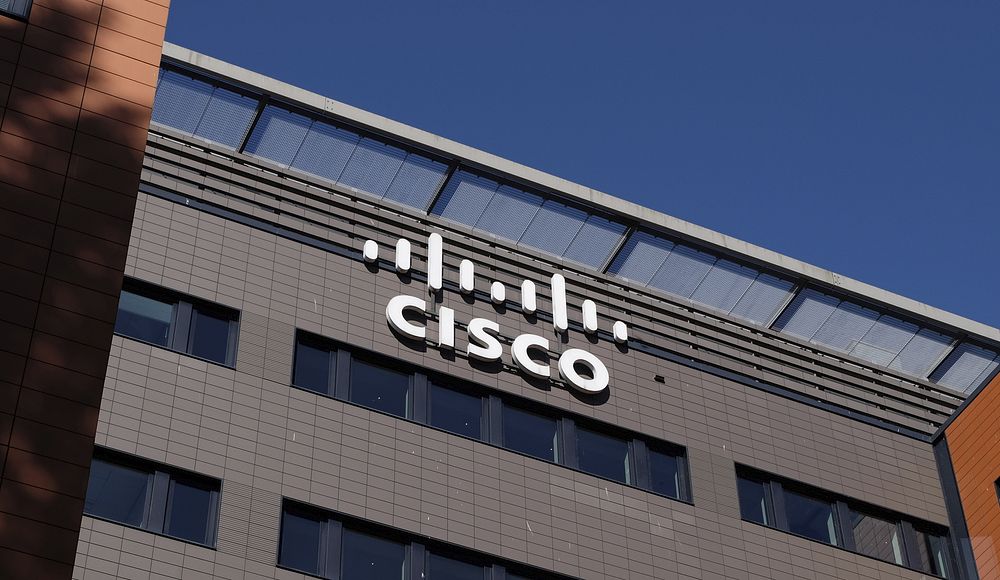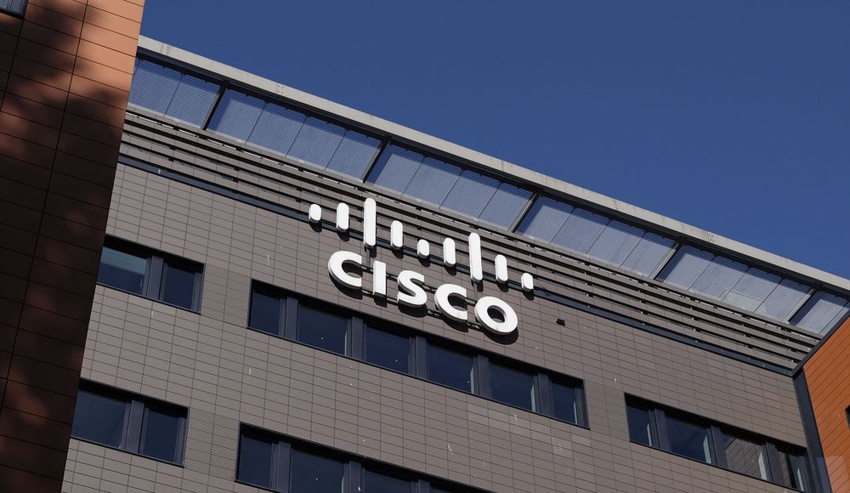Standing on the grounds of Lac Court Oreille Ojibwe University (LCOOU), I was overwhelmed with a sense of honor. I was there not only as a representative of Cisco but also as a member of the Native/Indigenous community. The occasion was the formalization of a new alliance aimed at bolstering the university and its students, made possible by the Student Freedom Initiative (SFI) and Cisco.
This event held a special significance for me for a couple of reasons. Firstly, the importance of representation cannot be overstated. I was there as a symbol of my heritage—Pomo, Hawaiian, and Choctaw—and the wider Native/Indigenous community. Secondly, the impact of Cisco’s contribution on Native/Indigenous students was equally significant.
Broadening Support for Tribal Colleges
In 2021, Cisco unveiled our collaboration with SFI, a charitable organization dedicated to assisting students at minority-serving institutions. As an integral part of this collaboration, Cisco established a $50 million endowment for third and fourth-year students pursuing STEM education at Historically Black Colleges and Universities (HBCUs). This funding was a segment of a $150 million pledge to HBCUs through Cisco’s social justice initiative. Our initial engagement with HBCUs has now set a precedent that is being extended to other minority-serving institutions, with LCOOU being the inaugural tribal college beneficiary.
“Closing the digital gap for Native/Indigenous communities is crucial in enabling them to attain self-determination for current and future generations.”
Extending Support to Students Beyond Financial Aid
LCOOU has now been granted access to a loan scheme for third and fourth-year STEM students. However, the collaboration with LCOOU is not just about financial aid. It also encompasses technological advancement and access to the Cisco Networking Academy.
Ensuring Cybersecurity Compliance
A key aspect of the agreement is to ensure that LCOOU meets crucial cybersecurity standards. Cisco’s partner, Procellis, was brought on board to carry out an assessment mandated by the National Institute of Standards and Technology. To continue receiving federal aid under Title IV, colleges and universities must comply with over 100 security controls. Cisco’s donation of security products and services will assist LCOOU in achieving and maintaining cybersecurity compliance.
For minority-serving institutions like LCOOU, safeguarding federal funding through technology compliance is of utmost importance.
Cisco Networking Academy Cisco is collaborating with LCOOU to establish a Networking Academy within the university. This allows the university to integrate the Network Academy curriculum into its computer science program. Consequently, students have the opportunity to graduate with both a degree and an industry-acknowledged certification.
Backing Native/Indigenous Communities I take immense pride in Cisco’s efforts to not only listen to Indigenous voices but also to support and empower them. Our collaboration with LCOOU is just one instance, but there are countless others.
For instance, I am the co-lead of our Native American Network (NAN), one of our employee resource organizations. Cisco is the first organization I’ve been a part of that has a Native American network. We’re a small team—Native Americans constitute less than 1% of Cisco’s employee base. NAN provides us a platform to celebrate our culture and contribute to the Native/Indigenous community. We also have the opportunity to forge connections between our organization and Native communities, many of which are skeptical of large corporations, and can benefit from technology.
I am proud of Cisco’s mission to foster an inclusive future for all and its commitment to ensuring minority-serving institutions like LCOOU have access to technology, services, and infrastructure. Closing the digital gap for Native/Indigenous communities is crucial in enabling them to attain self-determination for current and future generations.
This event held a special significance for me for a couple of reasons. Firstly, the importance of representation cannot be overstated. I was there as a symbol of my heritage—Pomo, Hawaiian, and Choctaw—and the wider Native/Indigenous community. Secondly, the impact of Cisco’s contribution on Native/Indigenous students was equally significant.
Broadening Support for Tribal Colleges
In 2021, Cisco unveiled our collaboration with SFI, a charitable organization dedicated to assisting students at minority-serving institutions. As an integral part of this collaboration, Cisco established a $50 million endowment for third and fourth-year students pursuing STEM education at Historically Black Colleges and Universities (HBCUs). This funding was a segment of a $150 million pledge to HBCUs through Cisco’s social justice initiative. Our initial engagement with HBCUs has now set a precedent that is being extended to other minority-serving institutions, with LCOOU being the inaugural tribal college beneficiary.
“Closing the digital gap for Native/Indigenous communities is crucial in enabling them to attain self-determination for current and future generations.”
Extending Support to Students Beyond Financial Aid
LCOOU has now been granted access to a loan scheme for third and fourth-year STEM students. However, the collaboration with LCOOU is not just about financial aid. It also encompasses technological advancement and access to the Cisco Networking Academy.
Ensuring Cybersecurity Compliance
A key aspect of the agreement is to ensure that LCOOU meets crucial cybersecurity standards. Cisco’s partner, Procellis, was brought on board to carry out an assessment mandated by the National Institute of Standards and Technology. To continue receiving federal aid under Title IV, colleges and universities must comply with over 100 security controls. Cisco’s donation of security products and services will assist LCOOU in achieving and maintaining cybersecurity compliance.
For minority-serving institutions like LCOOU, safeguarding federal funding through technology compliance is of utmost importance.
Cisco Networking Academy Cisco is collaborating with LCOOU to establish a Networking Academy within the university. This allows the university to integrate the Network Academy curriculum into its computer science program. Consequently, students have the opportunity to graduate with both a degree and an industry-acknowledged certification.
Backing Native/Indigenous Communities I take immense pride in Cisco’s efforts to not only listen to Indigenous voices but also to support and empower them. Our collaboration with LCOOU is just one instance, but there are countless others.
For instance, I am the co-lead of our Native American Network (NAN), one of our employee resource organizations. Cisco is the first organization I’ve been a part of that has a Native American network. We’re a small team—Native Americans constitute less than 1% of Cisco’s employee base. NAN provides us a platform to celebrate our culture and contribute to the Native/Indigenous community. We also have the opportunity to forge connections between our organization and Native communities, many of which are skeptical of large corporations, and can benefit from technology.
I am proud of Cisco’s mission to foster an inclusive future for all and its commitment to ensuring minority-serving institutions like LCOOU have access to technology, services, and infrastructure. Closing the digital gap for Native/Indigenous communities is crucial in enabling them to attain self-determination for current and future generations.


 Cisco’s Empowering Partnership with LCOOU: Bridging the Digital Divide for Native/Indigenous Communities
Cisco’s Empowering Partnership with LCOOU: Bridging the Digital Divide for Native/Indigenous Communities





 Companies
Companies